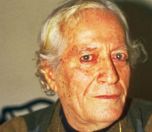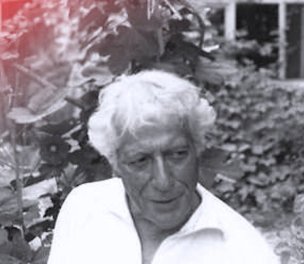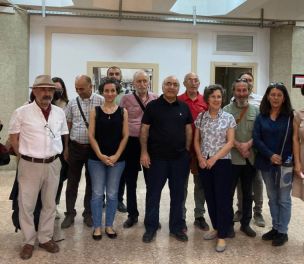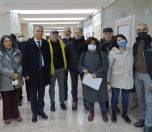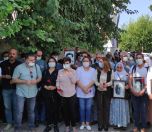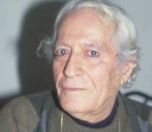Click to read the article in Turkish / Kurdish
The Gendarmerie Intelligence and Counter-Terrorism (JİTEM) case was heard today (September 15) in the capital city of Ankara.
The cases concerning the assassination of the Kurdish intellectual Musa Anter and the forced disappearance of Ayten Öztürk, both happened in 1992, had been previously merged with the JİTEM case.
The statute of limitations in the Anter case will expire on September 20. The court was expected to hand down its judgment today, but it adjourned the case to September 21.
The JİTEM, whose existence has never been officially confirmed, is accused of perpetrating thousands of extrajudicial killings in the country's mostly Kurdish-populated regions during the conflict in the 1990s.
Dicle Anter, the son of Musa Anter, as well as Peoples' Democratic Party (HDP) deputies Fatma Kurtalan, Kemal Peköz and Abdullah Koç, Republican People's Party (CHP) deputy Yıldırım Kaya, Human Rights Association (İHD) Chair Öztürk Türkdoğan, Progressive Lawyers Association (ÇHD) Ankara Branch Chair Murat Yılmaz attended the hearing, which began at around 9.45 a.m.
The lawyer of defendant Hamit Yıldırım said his client could not attend the hearing because of health problems, but did not submit a document to the court about that.
Anter: Nothing left to say
Dicle Anter, who is also an intervening person in the case, spoke first.
"Under these circumstances, there it not much left to say about my father's case. The period when my father was killed was like a nightmare for the Kurds; death was everywhere.
"The ECtHR convicted Türkiye, and the hearings began. Defendant Hamit Yıldırım had remained under arrest for five years, and then he was released. The case was moved to Ankara. Years have passed and we have come to these days.
"The Musa Anter murder [case] will drop due to the statute of limitations on September 20. However, there is no statute of limitations for crimes against humanity. Our struggle to shed light on the murder will continue.
"Starting from the Susurluk report, the witnesses and the defendants have given statements as if these incidents never happened ... We don't know whether the justice will be served if the [government] changes, because the authorities of that time are within the opposition right now.
"We won't let this case go. If not us, the future generations won't let it go."
"This case will never end"
After Anter, lawyer Öztürk Türkdoğan spoke.
"My client has conveyed his concerns. The greatest of these concerns is the ending of the case with statute of limitations. However, I'd like to note that this case cannot end this way because it's within the scope of the crimes against humanity, considering the ECtHR verdict about this case. If you have such thoughts, give up on them.
"Why is it within the scope of the crimes against humanity? At the Parliamentary Inquiry Committee on October 12, 1995, Anter murder is specifically mentioned and it is said the crime of terrorizing a part of society. This crime was confessed in 1995.
"We want the truth to be uncovered. Closing the case will create new violations. And this case will never end. Maybe the second generation will continue to follow the case.
"Your court will reveal the truth. Our requests for separation against the statute of limitations were not accepted."
Defending lawyer: The case should be dropped
The lawyer of defendant Savaş Gevrekçi said, "It has been revealed that my client was innocent. The time for the statute of limitations has come, anyway. Will we put the case in a political atmosphere, or will the case be heard? I request a decision to dismiss the case."
Defendant Hamit Yıldırım's lawyer said, "The laws are clear. The case is of course sad because of its content, but it's a publicized case. It is said 'triggerman,' 'murderer' about my client. My client should benefit from the presumption of innocence like all people."
Announcing its interim judgment, the court said it will decide on the requests about the statute of limitations and the separation of the files in the final hearing.
The next hearing will take place on September 21.
About Musa Anter
Author, journalist and activist. Assassinated in the southeastern Diyarbakır city in 1992. On September 20, 1992, Musa Anter attended the Culture-Art Festival in Diyarbakır, signed his books. An armed attack was launched against Anter and his nephew, journalist-writer Orhan Miroğlu in Cumhuriyet Neighborhood. Anter died, Miroğlu was wounded. The attack was allegedly conducted by Gendarmerie Intelligence and Counter-Terrorism Organization (JİTEM), a controversial wing and intelligence agency of the gendarmerie. It was during the 1937-38 Dersim Revolt that he was taken into custody for the first time. He was among the founders of Revolutionary Eastern Culture Hearths, the Labor Party of People, Mezopotamya Cultural Center and İstanbul Kurdish Institute. After leaving the Faculty of Law in the third year, Musa Anter started writing for Şark Postası and Dicle Kaynağı. He was imprisoned in 1959 because of his Kurdish poem "Qimil/Kımıl" published on İleri Yurt newspaper. Anter was also faced with life imprisonment in the lawsuit known as 49s. He was arrested in 1963, sent to exile in 1967 and imprisoned after the military coups in 1971 and 1980. Throughout his life, Anter wrote for İleri Yurt, Dicle-Fırat, Barış Dünyası, Deng, Yön, Azadiye Welat, Yeni Ülke, Özgür Gündem, Rewşen and Tewlo. He also published seven books and one Kurdish-Turkish Dictionary. Born in Mardin in 1920, Musa Anter completed his secondary and high school education in Adana and studied law at İstanbul University. |
(AS/VK)







